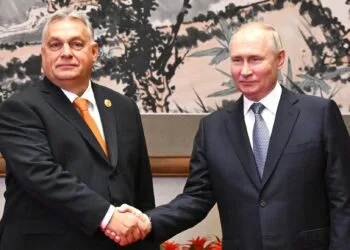Brussels – Hungary has not responded to the letter in which EU Home Affairs Commissioner Ylva Johansson asked Budapest for more explanations on the extension of visa facilitation to citizens from Russia and Belarus. Johansson had instructed Viktor Orbán’s government to respond by September 11. But today (September 12), a European Commission spokesman confirmed that nothing had arrived at the Berlaymont Palace.
A story, to tell the truth, we have already seen.
Budapest had also responded late—last August 23—to the European Commission’s first alarmed request for explanations. However, the reasons the Magyar government gave that the extension of entry facilities into the country for Russians and Belarusians aimed to fill the domestic labour shortage did not convince either Johansson or the EU Parliament.
Doubts about the so-called “National Card”, a fast-track visa system for entering the country and allowing work on Hungarian soil for up to two years, persist. It is simpler than a work permit or visa, allowing family reunification. Initially open only to Ukraine and Serbia, it was extended to Bosnia, Moldova, Montenegro, North Macedonia, Belarus and Russian citizens in July. But the extension to “two hostile countries” risks creating a “hole” in the Schengen space and allowing spies and saboteurs in the pay of the Kremlin to enter EU soil.
That is why Johansson asked Budapest on September 4 to clarify again “why it believes such a scheme is necessary in the current political situation” and how it will take into account the risk of infiltration from Russia and Belarus since “it appears that checks on citizens of the two countries will be no different from those on citizens of other nationalities.”
Hungary is not responding but may be forced to do so next Wednesday before the EU Parliament plenary session in Strasbourg. Indeed, the European Parliament has fixed a debate on the Hungarian “National Card” program and its consequences for Schengen security. The European Commission and the EU Council presidency will also speak. But the latter is represented precisely by Hungary, which holds the six-month leadership of the 27. So, a minister from the Orbán government will have to discuss in Parliament the decision made by Budapest. Generally, the principle applies that the country holding the rotating Council presidency speaks on behalf of the institution, not its own executive. But Orbán has already shown that he plays the role only at times to his liking.
English version by the Translation Service of Withub








